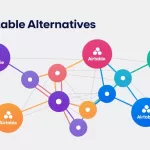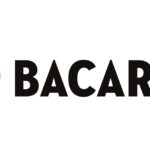Good news—you’ve got options! And in this post, we’ll walk you through the top HubSpot alternatives that can help you level up your marketing strategy without the overwhelm—or the hefty price tag.
Why Look for a HubSpot Alternative?
Before we jump into the alternatives, let’s quickly talk about why someone might look beyond HubSpot in the first place:
- Cost: HubSpot can get expensive fast, especially as your needs grow.
- Feature overload: Sometimes less is more. You may only need a few core tools, not an entire suite.
- Steep learning curve: HubSpot is powerful, but that power comes with complexity.
- More control or flexibility: Some teams want more customizable or open-source solutions.
Whatever your reason, there’s no shortage of platforms to choose from. Let’s dive in!
7 Great HubSpot Alternatives to Explore
1. ActiveCampaign: Best for Email and Marketing Automation
Think of ActiveCampaign as HubSpot’s little sibling that really knows how to keep in touch. If your marketing strategy leans heavily on email and automation, this tool may be your perfect match.
- Powerful email marketing and segmentation features
- Lead scoring to prioritize your efforts
- Affordable pricing compared to HubSpot
I used ActiveCampaign for a small business I consulted with, and what I liked most was how quickly we could set up automated workflows without hiring a dev team. It just works—and that counts for a lot.
2. Mailchimp: Simple and Straightforward
If all you need is easy-to-use email marketing with some added CRM and automation tools, Mailchimp could work like a charm. It’s been around forever and keeps improving.
- Beginner-friendly with drag-and-drop functionality
- Free plan makes starting a breeze
- Basic CRM and website builder features included
For small businesses or startups who don’t want to dive into deep funnels or complex journey mapping, Mailchimp keeps things light but effective.
3. Brevo (formerly Sendinblue): All-in-One Simplicity
Want email, SMS, chat, automation, and even sales tools—without breaking the bank? Brevo brings it all together in a single platform.
- Excellent value, especially for small businesses
- Unlimited contacts with pricing based on email volume
- Built-in CRM, live chat, and automation
I once worked with a non-profit using Brevo, and they loved how they could engage with donors via email and SMS in one place. It’s a one-stop shop that doesn’t feel overwhelming.
4. Zoho CRM: Affordable Sales and Marketing Combo
Zoho sits somewhere between a simple CRM and a full-featured suite like HubSpot. It’s especially handy if you want to combine your marketing tools with robust sales features.
- Highly customizable with tons of add-ons
- Budget-friendly with a great free tier
- Integrates with other Zoho tools like Books and Projects
Zoho also shines for teams that like tinkering or need a CRM that molds to their unique workflows. Just expect a moderate setup curve upfront.
5. Monday Sales CRM: Easy and Visual Workflow
If managing leads is your main goal and you like things visual and collaborative, Monday Sales CRM could be your sweet spot.
- Kanban-style boards make lead tracking intuitive
- Fits seamlessly if you already use Monday.com
- Customizable automation for task and deal management
Think Trello meets CRM—it turns managing contacts and deals into a team-friendly experience. This could be a big plus if your team already uses Monday for project management.
6. EngageBay: Small Business Favorite
EngageBay is essentially designed with startups and small businesses in mind. It combines marketing automation, sales, and customer service in one clean dashboard.
- Full CRM and marketing tools for a fraction of HubSpot’s cost
- Free plan with generous features
- Live chat, email marketing, and landing pages included
If you’re watching your expenses but still want an all-in-one solution, EngageBay deserves a look.
7. Pipedrive: Focused on Sales
Pipedrive is built for sales teams. It doesn’t have all the bells and whistles of HubSpot’s marketing hub, but it delivers where it matters if sales pipelines are your priority.
- Visual sales pipeline management
- Easy integration with 300+ apps
- Automated follow-ups and scheduling tools
Salespeople love it for its ease-of-use, and marketing teams can use integrations to tie Pipedrive into their broader strategy. It’s highly focused, which can be a strength.
How to Pick the Right Marketing Tool for You
So how do you choose the best HubSpot alternative when there are so many good options? Start by asking yourself:
- What are my top priorities? (Email marketing, sales funnels, automation?)
- What’s my monthly budget? If you’re a small team, affordability matters.
- How technical is my team? Simplicity could save time and frustration.
- Can this tool grow with me? You don’t want to outgrow your marketing platform too soon.
Trust me, there’s no one-size-fits-all. I’ve seen large teams rock with Brevo, and solo founders thrive with Mailchimp. The best tool is the one that fits your needs today—and tomorrow.
Final Thoughts
HubSpot is a strong tool, no doubt. But it’s not your only option. Whether you need something lightweight like Mailchimp or prefer something more robust like ActiveCampaign or EngageBay, there’s a tool out there with your name on it.
Remember: A great marketing strategy doesn’t depend on having the flashiest platform. It’s about choosing the right tools for your goals, team, and budget—and using them consistently.
So, are you ready to try something new?
Take some time to test these HubSpot alternatives and see which one feels like a fit. Most offer free trials, so why not explore? You might just find a marketing sidekick that works way better for your business.
Have you tried any of these tools or have a favorite alternative? Share your experience in the comments!









